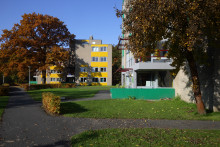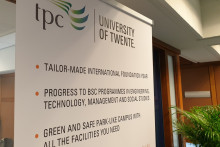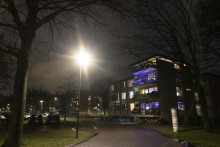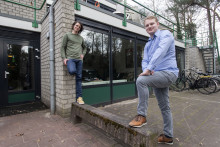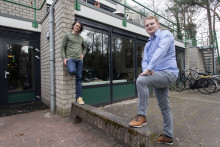The writer op the opinion article seems quite interested in getting different cultures to interact. I agree that this can be very valuable. Furthermore, she’s very keen on showing the beauty of all cultures: each one of them has tasty food and nice traditions to offer. Well, maybe not every culture. The Dutch one doesn’t seem to be very valuable to her. Of course, we only care about alcohol, living in our own trash, and nudity. This makes it quite clear to me that in this mingling of cultures, the Dutch one doesn’t require too much attention.
As you may have guessed, I’m one of the white males that seem to be disliked by the writer. While I live in a mainly Dutch household, we’ve had multiple internationals live here as well. Now, I won’t generalize. We’ve had Germans here that learned to speak Dutch fluently, and multiple internationals that, after the promise of learning Dutch, and us speaking English, don’t try to integrate in the house at all. Because yes, integration is difficult, and even requires effort from the international student! There are in fact Dutch traditions, that we’d like to celebrate. This doesn’t include only writing poems for Sinterklaas, but also day-to-day things. A German housemate told us that having a warm dinner in the evening was not normal for them. There goes your daily interaction. Bye, bye, integration!
The main point of the article seems to be the co-optation right. The writer would rather provide everyone the freedom to live where they please. However, freedom for one always restricts the freedom of another (e.g. one’s freedom to kill, would inhibit another’s freedom to live peacefully). The difficult thing about providing everyone the freedom to live where they want, is that it takes away the freedom for people to choose who they live with.
Living with people that you don’t like can be very tough. The main goal of co-optation is to prevent this from happening. I want to stress that the co-optation right doesn’t state that one should pick only white males. I agree that houses aren’t as culturally diverse as they could be. However, I don’t think this should be the highest goal. The houses as they are formed now, show a similar sense of humour, tradition, and yes, circadian rhythm, leading to a comfortable living experience.
Unfortunately for the writer, in the co-optation process, you are judged on your character. Regardless of their origin, the internationals that lived in our student house showed different levels of integration. It’s almost like the success of your integration is not based on your cultural origin, but on your personal traits. And this is what I want to get to: some Dutch students face the same problems going abroad, and some don’t. Some have the audacity to truly adapt to the country they want to live in, while others wait for external instances to solve all the problems for them. Even for the latter group, the UT works hard. To solve the lack of available housing, many studios were built. Instead of seeing this as forced isolation, why not see it as the opportunity to live alone (also for Dutch students!) if one pleases? Or as the facilitating of living space for the internationals that only come here to get a good education?
I want to applaud the UT community for the work they put into the inclusion of internationals. Because the ‘exclusive association culture’ seems to be long gone. Even if you can’t get into a Dutch house, because you don’t want to put in the effort of learning the language, every study-, sports and cultural association has worked hard to transfer to all documents, meetings, and trainings to English. Furthermore, these activities are open for anyone to join (if you dare to go to a training where you don’t know anyone yet).
To conclude, the writer’s article only further turns the Internationals against the Dutch, and seems to mainly score some cheap points with international readers, instead of taking some responsibility. How about a mutual assimilation, where internationals try to learn the language and cultural values of the country they’re a guest in, and we’ll provide the opportunity to do so? I think both sides will benefit.


